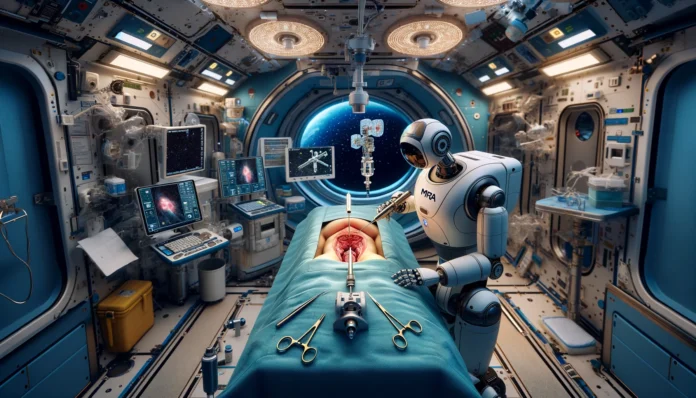MIRA, a miniaturized in vivo robotic assistant, is a groundbreaking surgical robot recently deployed to the International Space Station (ISS). Weighing about 2 pounds, MIRA represents the first surgical robot at the ISS and is set to carry out a remote-controlled surgical simulation. Developed by Virtual Incision Corporation in collaboration with NASA and the University of Nebraska, this robotic assistant aims to pioneer remote surgery in zero gravity, potentially revolutionizing medical procedures for long-distance space travel and improving healthcare access on Earth.
Robotic Assistant MIRA Takes on Zero Gravity Surgery Challenge
The advent of MIRA at the International Space Station marks a significant milestone in medical technology’s reach into space. This small yet ambitious robotic assistant arrived at the ISS on February 1 and will undergo tests to perform surgical operations in zero gravity. The surgical simulation, controlled by a surgeon from Nebraska 250 miles away, will mimic tissue dissection, showcasing the robots capability to grasp and cut precisely.
MIRA’s development was fueled by a partnership between NASA and the University of Nebraska, aiming to explore the viability of robotic-assisted surgery (RAS) in extreme conditions, such as space. This endeavor is not just about advancing space medicine but also about making sophisticated surgical procedures accessible in remote and underserved areas on Earth. Shane Farritor, co-founder of Virtual Incision, expressed the vision of making RAS available “to any patient, any time, anywhere,” emphasizing the importance of overcoming geographical barriers in healthcare.
MIRA’s design focuses on portability and ease of use, characteristics that are crucial for deployment in rural settings or military battlefields. The technology behind MIRA has been in development for nearly two decades, with a concerted effort to create a device that simplifies the logistic challenges associated with traditional, bulkier RAS systems. Scheduled to return to Earth in the spring, this mission could set the stage for future advancements in both space exploration and global healthcare delivery.
Why It Matters
MIRA’s deployment to the ISS and its upcoming surgical simulation underscore the potential of robotic technology to transcend terrestrial boundaries and address critical challenges in healthcare. This innovation could significantly enhance medical support for astronauts on long-duration space missions and bring advanced surgical capabilities to remote parts of the world.
Potential Implications
The success of MIRA in conducting remote-controlled surgery in space could pave the way for more widespread adoption of robotic-assisted surgical systems worldwide. It holds the promise of transforming healthcare delivery in remote areas, improving outcomes in emergency and military medical scenarios, and furthering our preparedness for future manned space missions.
Source: NPR


